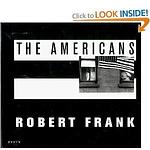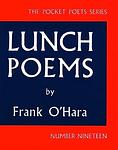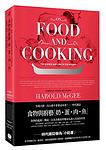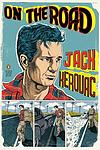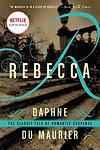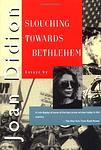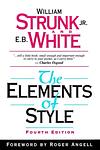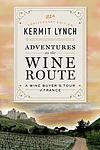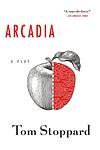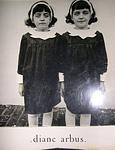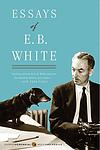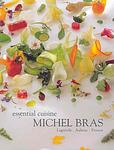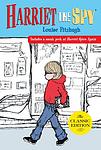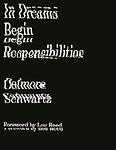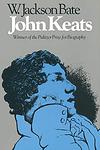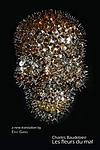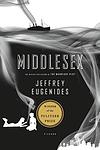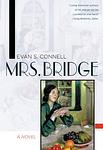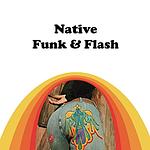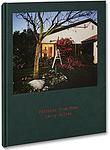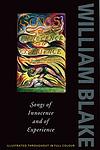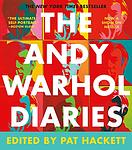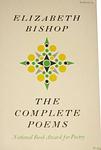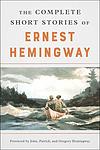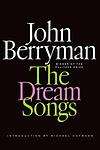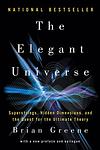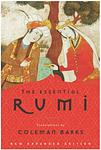The Ideal Library
This is one of the 284 lists we use to generate our main The Greatest Books list.
-
Lolita by Vladimir Nabokov
The novel tells the story of Humbert Humbert, a man with a disturbing obsession for young girls, or "nymphets" as he calls them. His obsession leads him to engage in a manipulative and destructive relationship with his 12-year-old stepdaughter, Lolita. The narrative is a controversial exploration of manipulation, obsession, and unreliable narration, as Humbert attempts to justify his actions and feelings throughout the story.
-
Moby Dick by Herman Melville
The novel is a detailed narrative of a vengeful sea captain's obsessive quest to hunt down a giant white sperm whale that bit off his leg. The captain's relentless pursuit, despite the warnings and concerns of his crew, leads them on a dangerous journey across the seas. The story is a complex exploration of good and evil, obsession, and the nature of reality, filled with rich descriptions of whaling and the sea.
-
Jesus' Son by Denis Johnson
The book is a collection of linked short stories narrated by a young, unnamed protagonist who struggles with drug addiction. The stories are set in various locations across the United States and are filled with surreal and sometimes violent experiences. Despite the bleak circumstances, the narrator seeks moments of beauty and grace, often finding them in unexpected places. The narrative is characterized by its disjointed chronology, hallucinatory descriptions, and dark humor.
-
The Wind-Up Bird Chronicle by Haruki Murakami
A man's search for his wife's missing cat evolves into a surreal journey through Tokyo's underbelly, where he encounters a bizarre collection of characters with strange stories and peculiar obsessions. As he delves deeper, he finds himself entangled in a web of dreamlike scenarios, historical digressions, and metaphysical investigations. His reality becomes increasingly intertwined with the dream world as he grapples with themes of fate, identity, and the dark side of the human psyche.
-
Ulysses by James Joyce
Set in Dublin, the novel follows a day in the life of Leopold Bloom, an advertising salesman, as he navigates the city. The narrative, heavily influenced by Homer's Odyssey, explores themes of identity, heroism, and the complexities of everyday life. It is renowned for its stream-of-consciousness style and complex structure, making it a challenging but rewarding read.
-
A Supposedly Fun Thing I'll Never Do Again by David Foster Wallace
"A Supposedly Fun Thing I'll Never Do Again" is a collection of seven essays that blends humor, insight, and philosophical pondering. The author explores a wide range of topics, from the impact of television on contemporary literature to the despair of the American cruise industry, and even the nature of David Lynch's films. The book is a brilliant showcase of the author's unique ability to see the extraordinary in the ordinary, all while using his sharp wit and expansive intellect to explore the complexities of modern life.
-
Blood Meridian by Cormac McCarthy
Set in the mid-19th century, this novel follows a violent teenager known as "the Kid" as he joins a group of Indian-hunters led by the enigmatic and brutal Judge Holden. The narrative is a gruesome depiction of the lawless American West, filled with philosophical musings, vivid descriptions of the harsh landscape, and brutal, relentless violence. The story explores themes of human nature, morality, and the inherent chaos and brutality of life.
-
Catch-22 by Joseph Heller
The book is a satirical critique of military bureaucracy and the illogical nature of war, set during World War II. The story follows a U.S. Army Air Forces B-25 bombardier stationed in Italy, who is trying to maintain his sanity while fulfilling his service requirements so that he can go home. The novel explores the absurdity of war and military life through the experiences of the protagonist, who discovers that a bureaucratic rule, the "Catch-22", makes it impossible for him to escape his dangerous situation. The more he tries to avoid his military assignments, the deeper he gets sucked into the irrational world of military rule.
-
Nine Stories by J. D. Salinger
"Nine Stories" is a collection of short stories that delve into the complex inner lives of a variety of characters, often exploring themes of innocence, alienation, and the loss of innocence. Each story is unique, offering a glimpse into a different world or situation, but all are marked by the author's distinctive narrative voice and his ability to create compelling, deeply human characters. From a young boy dealing with the death of his brother to a World War II veteran struggling with PTSD, the stories are both profound and deeply affecting.
-
One Hundred Years of Solitude by Gabriel Garcia Marquez
This novel is a multi-generational saga that focuses on the Buendía family, who founded the fictional town of Macondo. It explores themes of love, loss, family, and the cyclical nature of history. The story is filled with magical realism, blending the supernatural with the ordinary, as it chronicles the family's experiences, including civil war, marriages, births, and deaths. The book is renowned for its narrative style and its exploration of solitude, fate, and the inevitability of repetition in history.
-
The Americans by Robert Frank
"The Americans" is a photographic journey through the United States in the 1950s, capturing the everyday lives of its citizens. The book presents a raw, unfiltered view of American society during this time, revealing both its strengths and weaknesses. It offers a unique perspective on the country's culture, racial tensions, economic disparities, and political climate, providing a profound commentary on the American experience.
-
The Complete Stories of Flannery O'Connor by Flannery O'Connor
This comprehensive collection of short stories showcases the author's exploration of the human condition, particularly in the American South. The stories, known for their dark humor, religious themes, and grotesque characters, delve into the complexities of morality, ethics, and the struggle between good and evil. The author's unique blend of Southern Gothic style and religious allegory creates a vivid portrait of a society grappling with its own contradictions and shortcomings.
-
To Kill a Mockingbird by Harper Lee
Set in the racially charged South during the Depression, the novel follows a young girl and her older brother as they navigate their small town's societal norms and prejudices. Their father, a lawyer, is appointed to defend a black man falsely accused of raping a white woman, forcing the children to confront the harsh realities of racism and injustice. The story explores themes of morality, innocence, and the loss of innocence through the eyes of the young protagonists.
-
A Confederacy of Dunces by John Kennedy Toole
The novel is a comedic satire set in New Orleans in the early 1960s, centered around Ignatius J. Reilly, a lazy, eccentric, highly educated, and socially inept man who still lives with his mother. Ignatius spends his time writing a lengthy philosophical work while working various jobs and avoiding the responsibilities of adulthood. The story follows his misadventures and interactions with a colorful cast of characters in the city, including his long-suffering mother, a flamboyant nightclub owner, a beleaguered factory worker, and a frustrated hot dog vendor.
-
Cathedral by Raymond Carver
"Cathedral" is a collection of twelve short stories that explore the complexities of human relationships and the struggles of everyday life. The characters, often middle-class Americans, grapple with loss, isolation, and the inability to communicate effectively. The title story involves a man who gains insight into his own life when he helps a blind man envision a cathedral. Through these tales, the author highlights the profound moments in ordinary lives, showing the beauty and tragedy in the mundane.
-
Dispatches by Michael Herr
This book is a first-hand account of the Vietnam War from a war correspondent's perspective. The author vividly describes the chaos, violence, and absurdity of the war, providing a raw and unfiltered look at the experiences of soldiers on the ground. The narrative is filled with gritty details and intense imagery, capturing the fear, boredom, and disillusionment that characterized the war. The book is considered a classic of war reportage, lauded for its honest and brutal portrayal of the realities of combat.
-
In Search of Lost Time by Marcel Proust
This renowned novel is a sweeping exploration of memory, love, art, and the passage of time, told through the narrator's recollections of his childhood and experiences into adulthood in the late 19th and early 20th century aristocratic France. The narrative is notable for its lengthy and intricate involuntary memory episodes, the most famous being the "madeleine episode". It explores the themes of time, space and memory, but also raises questions about the nature of art and literature, and the complex relationships between love, sexuality, and possession.
-
Infinite Jest by David Foster Wallace
This novel is a complex, multi-layered narrative that explores themes of addiction, recovery, and the human condition in a near-future society. The story is set in a tennis academy and a halfway house for recovering addicts, and it intertwines the lives of its numerous characters, including a gifted but troubled teenage tennis prodigy, his filmmaker father, and a group of Quebecois separatists. The book is known for its length, intricate plot, and extensive use of footnotes.
-
Invisible Man by Ralph Ellison
The novel is a poignant exploration of a young African-American man's journey through life, where he grapples with issues of race, identity, and individuality in mid-20th-century America. The protagonist, who remains unnamed throughout the story, considers himself socially invisible due to his race. The narrative follows his experiences from the South to the North, from being a student to a worker, and his involvement in the Brotherhood, a political organization. The book is a profound critique of societal norms and racial prejudice, highlighting the protagonist's struggle to assert his identity in a world that refuses to see him.
-
Jane Eyre by Charlotte Bronte
The novel follows the life of Jane Eyre, an orphan who is mistreated by her relatives and sent to a charity school. As she grows up, Jane becomes a governess at Thornfield Hall, where she falls in love with the brooding and mysterious Mr. Rochester. However, she soon learns of a dark secret in his past that threatens their future together. The story is a profound exploration of a woman's self-discovery and her struggle for independence and love in a rigid Victorian society.
-
Lunch Poems by Frank O'Hara
"Lunch Poems" is a collection of verse that captures the hustle and bustle of everyday life in New York City during the 1960s. The poems are spontaneous, conversational, and often humorous, reflecting the author's observations and thoughts during his lunch breaks. The collection is a celebration of the ordinary, the mundane, and the overlooked, offering a unique perspective on the human condition and urban life.
-
Middlemarch by George Eliot
Set in the fictitious English town of Middlemarch during the early 19th century, the novel explores the complex web of relationships in a close-knit society. It follows the lives of several characters, primarily Dorothea Brooke, a young woman of idealistic fervor, and Tertius Lydgate, an ambitious young doctor, who both grapple with societal expectations, personal desires, and moral dilemmas. Their stories intertwine with a rich tapestry of other townsfolk, reflecting themes of love, marriage, ambition, and reform, making a profound commentary on the human condition.
-
Midnight's Children by Salman Rushdie
The novel tells the story of Saleem Sinai, who was born at the exact moment when India gained its independence. As a result, he shares a mystical connection with other children born at the same time, all of whom possess unique, magical abilities. As Saleem grows up, his life mirrors the political and cultural changes happening in his country, from the partition of India and Pakistan, to the Bangladesh War of Independence. The story is a blend of historical fiction and magical realism, exploring themes of identity, fate, and the power of storytelling.
-
Mrs. Dalloway by Virginia Woolf
The novel chronicles a day in the life of Clarissa Dalloway, a high-society woman in post-World War I England, as she prepares for a party she is hosting that evening. Throughout the day, she encounters various characters from her past, including a former suitor and a shell-shocked war veteran. The narrative jumps back and forth in time and in and out of different characters' minds, exploring themes of mental illness, existentialism, and the nature of time.
-
On Food and Cooking: The Science and Lore of the Kitchen by Harold McGee
This book is an in-depth exploration of the science and history behind various culinary techniques and ingredients. It provides readers with a comprehensive understanding of how and why certain cooking processes work, from the chemical reactions involved in baking to the origins of different food traditions. The book also delves into the nutritional value of foods, offering insights into how different preparation methods can impact health. It's a must-read for anyone interested in the science of cooking and the cultural significance of food.
-
On the Road by Jack Kerouac
This novel follows the story of a young man and his friend as they embark on a series of cross-country road trips across America during the late 1940s and early 1950s. The protagonist, driven by a desire for freedom and a quest for identity, encounters a series of eccentric characters and experiences the highs and lows of the Beat Generation. The narrative is a testament to the restlessness of youth and the allure of adventure, underscored by themes of jazz, poetry, and drug use.
-
Pale Fire by Vladimir Nabokov
The novel is a unique blend of fiction, commentary, and poetry, presented as a 999-line poem written by a fictional poet, followed by an extensive commentary and foreword by his neighbor and academic colleague. The novel blurs the line between reality and fiction, as the commentator's notes reveal an alternative narrative, one of exile, intrigue, and murder. The book is a playful exploration of authorship, deception, and the nature of art.
-
Rebecca by Daphne du Maurier
A young woman marries a wealthy widower and moves into his large English country house. She quickly realizes that the memory of her husband's first wife, Rebecca, haunts every corner of the estate. The housekeeper's obsessive devotion to Rebecca and the mysterious circumstances of her death continue to overshadow the second wife's attempts to make a happy life with her husband. As secrets about Rebecca's life and death are revealed, the new wife must grapple with her own identity and place within the household.
-
Slouching Towards Bethlehem by Joan Didion
This book is a collection of essays that capture the essence of the 1960s in California. It portrays a society in the midst of social and cultural upheaval, as traditional norms are challenged by the counterculture movement. The author explores various themes including morality, self-respect, and the nature of good and evil, while providing a vivid picture of the era through her insightful and incisive observations.
-
The Amazing Adventures of Kavalier and Clay by Michael Chabon
The book follows the lives of two Jewish cousins, one a skilled escape artist and the other a talented artist, before, during, and after World War II. They create a popular comic book superhero, which brings them fame and fortune. However, their success is complicated by personal struggles, including the escape artist's attempts to rescue his family from Nazi-occupied Prague and the artist's struggle with his sexuality. The narrative explores themes of escapism, identity, and the golden age of comic books.
-
The Catcher in the Rye by J. D. Salinger
The novel follows the story of a teenager named Holden Caulfield, who has just been expelled from his prep school. The narrative unfolds over the course of three days, during which Holden experiences various forms of alienation and his mental state continues to unravel. He criticizes the adult world as "phony" and struggles with his own transition into adulthood. The book is a profound exploration of teenage rebellion, alienation, and the loss of innocence.
-
The Collected Stories Of Lydia Davis by Lydia Davis
The collection is a compendium of short fiction that showcases the author's deftness in capturing the intricacies of human experience through precise, often experimental prose. The stories range from the very brief to the more developed, exploring themes of language, memory, and the often overlooked moments of everyday life. With a unique voice that combines wit, keen observation, and a mastery of form, the author challenges traditional narrative structures, inviting readers to engage with the text on multiple levels and to find meaning in the spaces between the words as much as in the words themselves. The result is a body of work that is both intellectually stimulating and emotionally resonant, cementing the author's reputation as a significant figure in contemporary literature.
-
The Elements of Style by E. B. White, William Strunk Jr.
This book is a definitive guide and classic manual on the principles of English language read by millions of readers. The 18 main topics are organized under headings such as Elementary Rules of Usage, Elementary Principles of Composition, A Few Matters of Form, Words and Expressions Commonly Misused, and An Approach to Style. The book's unique tone, wit and charm have conveyed the principles of English style to millions of readers, making it a beloved resource for those who want to write clear, correct and effective prose.
-
The Great Gatsby by F. Scott Fitzgerald
Set in the summer of 1922, the novel follows the life of a young and mysterious millionaire, his extravagant lifestyle in Long Island, and his obsessive love for a beautiful former debutante. As the story unfolds, the millionaire's dark secrets and the corrupt reality of the American dream during the Jazz Age are revealed. The narrative is a critique of the hedonistic excess and moral decay of the era, ultimately leading to tragic consequences.
-
The House Book by Terence Conran
"The House Book" is a comprehensive guide to home design and decoration, offering a wealth of ideas for creating a comfortable, functional, and aesthetically pleasing living environment. It covers a range of topics including space planning, color schemes, furniture selection, and accessorizing, providing practical advice alongside inspiring photographs. The book aims to cater to a variety of tastes and budgets, encouraging readers to express their personal style while considering the principles of good design. It serves as a valuable resource for both homeowners looking to renovate their space and design enthusiasts seeking to deepen their understanding of interior design concepts.
-
The Long Goodbye: A Novel by Raymond Chandler
This novel follows the story of a hard-boiled detective in Los Angeles who becomes embroiled in a complex case when he befriends a drunk named Terry Lennox. After Lennox's wife is found dead, Lennox disappears to Mexico and the detective is left to unravel the mystery. The detective then takes on another case of a missing husband, which becomes intertwined with the Lennox case, leading to a web of deceit, corruption, and murder. The detective's pursuit of the truth leads him through a gritty and corrupt world, testing his resolve and morality.
-
The Palm At The End Of The Mind by Wallace Stevens
"The Palm at the End of the Mind" is a collection of selected poems and a play that delves into the intricate relationship between reality and imagination. The works within this anthology explore the power of the human mind to create and perceive beauty, truth, and meaning in the world. Through a blend of philosophical musings and vivid imagery, the poems challenge readers to consider the role of poetry and art in shaping one's understanding of existence. The pieces in this compilation reflect on themes of nature, the self, and the divine, offering a profound meditation on the transformative potential of language and thought.
-
The Sound and the Fury by William Faulkner
The novel is a complex exploration of the tragic Compson family from the American South. Told from four distinct perspectives, the story unfolds through stream of consciousness narratives, each revealing their own understanding of the family's decline. The characters grapple with post-Civil War societal changes, personal loss, and their own mental instability. The narrative is marked by themes of time, innocence, and the burdens of the past.
-
To the Lighthouse by Virginia Woolf
This novel is a pioneering work of modernist literature that explores the Ramsay family's experiences at their summer home on the Isle of Skye in Scotland. The narrative is divided into three sections, focusing on a day in the family's life, a description of the house during their absence, and their return after ten years. The book is known for its stream of consciousness narrative technique and its exploration of topics such as the passage of time, the nature of art, and the female experience.
-
2666 by Roberto Bolaño
The novel is a sprawling, ambitious work that spans continents and time periods, centering around an elusive, reclusive German author. It intertwines five different narratives: a group of European academics searching for the author, a professor in Mexico dealing with his own personal crises, a New York reporter sent to cover a boxing match in Mexico, an African-American journalist in Detroit, and the horrifying and unsolved murders of hundreds of women in a Mexican border town. The narratives are linked by themes of violence, mystery, and the search for meaning in a chaotic world.
-
A Clockwork Orange by Anthony Burgess
This novel follows the life of a violent young man named Alex, who is part of a youth subculture in a dystopian future England. Alex and his gang engage in a nightmarish spree of rape, assault, and robbery, until he is arrested and subjected to a psychological experiment by the government to "cure" him of his violent tendencies. The novel explores themes of free will, morality, and the nature of evil, while using a unique slang language invented by the author.
-
A Good Man Is Hard to Find by Flannery O'Connor
This collection of short stories is set in the American South and explores themes of morality, ethics, and the complexity of human nature. The stories feature a variety of characters, each grappling with their own moral dilemmas and personal struggles. The title story centers around a family's disastrous road trip, during which they encounter a notorious escaped convict. Through these narratives, the book examines the concept of "goodness" and the capacity for redemption and grace in a flawed world.
-
A Mother's Kisses by Bruce Jay Friedman
The novel is a comedic and poignant exploration of the intense and complex relationship between a young man and his overbearing mother. The story follows the protagonist as he grapples with the challenges of adolescence, the pressures of college admissions, and the pursuit of his individual identity, all under the watchful and often smothering affection of his mother. Her relentless involvement in every facet of his life leads to a series of humorous and uncomfortable situations, revealing the universal themes of familial love, the struggle for independence, and the often fraught dynamic between parents and their growing children.
-
Moveable Feast by Ernest Hemingway
This memoir offers a glimpse into the life of a young American writer living in Paris during the 1920s. The book is filled with personal anecdotes and observations about his life and experiences, including his relationships with other expatriate writers and artists of the Lost Generation. The focus is on the joy of life, the art of writing, and the struggle of a writer. The book also explores the author's love for the city of Paris, which he refers to as a "moveable feast".
-
A Season in Hell by Arthur Rimbaud
"A Season in Hell" is a deeply introspective work, exploring the author's tumultuous life and struggles through a series of prose poems. The author grapples with his own moral crisis, spiritual torment and the anguish of unrequited love, while also critiquing society and the human condition. This journey through despair and redemption, filled with vivid and surreal imagery, is considered one of the pioneering works of Symbolist literature.
-
Absalom, Absalom! by William Faulkner
This novel is a complex narrative about Thomas Sutpen, a poor white man who rises to power in the South, aiming to create a dynasty that would rival the old aristocratic families. However, his ambitions are thwarted by his own flawed decisions and the overarching racial and societal tensions of the era. The story is not told in a linear fashion but rather through a series of interconnected flashbacks and narratives, offering different perspectives on the same events. The book explores themes of family, class, race, and the destructive power of obsession.
-
Adventures On The Wine Route by Kermit Lynch
In this captivating narrative, the author takes readers on a journey through the vineyards of France, sharing his passion for wine and the stories of the winemakers he meets along the way. With an engaging blend of travelogue, personal anecdotes, and wine education, the book explores the traditions and innovations in French winemaking, offering insights into the complexities of terroir, the artistry of blending, and the dedication required to produce exceptional wines. The author's adventures reveal the soul of the wine country and the characters who dedicate their lives to the craft of winemaking, providing a unique window into the world of fine wines and the culture that surrounds them.
-
Alice's Adventures in Wonderland by Lewis Carroll
This novel follows the story of a young girl named Alice who falls down a rabbit hole into a fantastical world full of peculiar creatures and bizarre experiences. As she navigates through this strange land, she encounters a series of nonsensical events, including a tea party with a Mad Hatter, a pool of tears, and a trial over stolen tarts. The book is renowned for its playful use of language, logic, and its exploration of the boundaries of reality.
-
American Pastoral by Philip Roth
This novel tells the story of Seymour "Swede" Levov, a successful Jewish-American businessman and former high school athlete from Newark, New Jersey. Levov's happy and conventional upper middle class life is ruined by the domestic social and political turmoil of the 1960s during the presidency of Lyndon B. Johnson, which in the novel is seen through the eyes of the narrator, Nathan Zuckerman, a budding writer who idolizes the Levovs. The novel portrays the impact of this turmoil on Levov and his family, particularly his rebellious daughter who becomes involved in revolutionary political activities.
-
Arcadia by Tom Stoppard
"Arcadia" is a play that intertwines two timelines, set in the same English country house but centuries apart. In the early 19th century, a gifted young girl and her tutor delve into intellectual pursuits, exploring mathematics, nature, and the early inklings of chaos theory, while around them, the adults engage in witty repartee, romantic entanglements, and poetic rivalries. In the present day, scholars and descendants of the house's historical residents attempt to piece together the past, often misinterpreting the evidence they find. The play explores themes of time, truth, and the impact of the past on the present, all while showcasing the enduring nature of human curiosity and the quest for knowledge.
-
As I Lay Dying by William Faulkner
The narrative unfolds through the eyes of 15 different characters over 59 chapters. It is the story of the death of Addie Bundren and her poor, rural family's quest and motivations—noble or selfish—to honor her wish to be buried in her hometown of Jefferson, Mississippi. As the Bundren family undertakes a journey to fulfill Addie's last wish, they face many hardships and personal revelations. The novel explores themes of existentialism, death, and the nature of family relationships.
-
Bird By Bird by Anne Lamott
The book is a guide to writing and life in which the author shares her personal insights and practical advice on the craft of writing. Through a series of anecdotes, reflections, and suggestions, she addresses various aspects of the writing process, from the importance of getting started with "shitty first drafts" to dealing with writer's block and the emotional rollercoaster that writers often experience. The author emphasizes the value of writing as a way to understand oneself and the world, and encourages writers to take it "bird by bird," or step by step, focusing on small, manageable tasks to overcome the overwhelming nature of the creative process.
-
Birds of America by Lorrie Moore
"Birds of America" is a collection of twelve short stories that delve into the complexities of human relationships and the struggles of everyday life. The stories feature a variety of characters, including a woman who is dealing with her husband's terminal illness, a couple who are struggling to conceive, and a woman who is trying to come to terms with her brother's suicide. The stories are filled with humor, wit, and poignant observations about life, love, and loss.
-
The Breakfast of Champions by Kurt Vonnegut
The novel is a satirical depiction of American society, with a particular focus on its materialism, business culture, and obsession with success. It tells the story of two men: Dwayne Hoover, a wealthy businessman who is gradually losing his sanity, and Kilgore Trout, a largely unsuccessful science fiction writer. Their lives intersect in a series of absurd, tragicomic events, leading to a climax that forces the reader to question the nature of free will and the meaning of life. The narrative is punctuated by the author's own illustrations and frequent digressions on a wide range of topics.
-
Cannery Row by John Steinbeck
Set during the Great Depression, the novel explores the lives of a community of people living in a sardine canning district on the coast of California. The narrative revolves around a group of unemployed yet resourceful men who are trying to throw a party for their friend, a marine biologist. The book is a series of vignettes, giving a detailed and humorous insight into the lives of the people in this district, their struggles, their joys, and their simple pleasures.
-
Cloud Atlas by David Mitchell
This novel is a unique blend of six different stories, each set in a different time and place, spanning from the 19th century South Pacific to a post-apocalyptic future. Each tale is written in a different style, reflecting the time and setting it represents, and they are all connected through shared themes and recurring motifs. The stories are nested within each other, with each interrupted by the next, only to be concluded in the second half of the book. The novel explores themes of predacity, civilization, reincarnation and the eternal recurrence of the same behaviors throughout history.
-
Fictions by Jorge Luis Borges
"Collected Fiction" is a compilation of stories by a renowned author that takes readers on a journey through a world of philosophical paradoxes, intellectual humor, and fantastical realities. The book features a range of narratives, from complex, multi-layered tales of labyrinths and detective investigations, to metaphysical explorations of infinity and the nature of identity. It offers an immersive and thought-provoking reading experience, blurring the boundaries between reality and fiction, past and present, and the self and the universe.
-
Cryptonomicon by Neal Stephenson
The book is a sprawling narrative that intertwines two timelines: the first during World War II, focusing on the efforts of cryptographers and mathematicians working to break Axis codes, and the second in the late 20th century, following a group of entrepreneurs and hackers establishing a data haven in Southeast Asia. The novel explores themes of cryptography, mathematics, and the history of computing, weaving together real historical figures with fictional characters. As the plot unfolds across different continents and eras, it delves into the impact of information technology on society and the perpetual conflict between governments and individuals over the control of information and privacy.
-
Diane Arbus: An Aperture Monograph by Marvin Israel, Doon Arbus
This monograph is a seminal work in the field of photography, presenting a compelling collection of black-and-white images that capture the essence of the American social landscape during the 1950s and 1960s. The book showcases the photographer's groundbreaking approach to portraiture, which often focused on subjects from the fringes of society, including circus performers, transgender individuals, and people with unique physical attributes. Through her lens, the photographer sought to reveal the humanity and dignity of her subjects, challenging conventional notions of beauty and normality and leaving a lasting impact on the art of photography.
-
Essays of E. B. White by E. B. White
This book is a collection of essays written by a renowned American writer, offering a wide range of topics including nature, politics, literature, and personal experiences. The author's distinct style of writing, characterized by wit, humor, and profound insight, is evident throughout the book. The essays serve as a reflection of the author's thoughts and observations about life, society, and the world, providing readers with an intimate look into his mind and perspective.
-
Essential Cuisine by Michel Bras
"Essential Cuisine" is a comprehensive guide to gourmet cooking, written by a renowned French chef. The book provides readers with recipes that highlight the chef's innovative and unique approach to cooking, focusing on the use of fresh, local ingredients. The book also includes stunning photography of the dishes and the chef's home region, making it as much a visual feast as a culinary one. It is a must-have for anyone interested in haute cuisine and the art of fine dining.
-
Everything That Rises Must Converge by Flannery O'Connor
"Everything That Rises Must Converge" is a collection of nine short stories that explore themes of racial tension, family dynamics, and morality in the mid-20th century American South. The stories delve into the psyche of various characters, most of whom are grappling with the changing social and racial landscape of the time. The narratives often reveal the characters' inherent prejudices and their struggle to reconcile their beliefs with the evolving world around them.
-
Flappers And Philosophers by F. Scott Fitzgerald
"Flappers and Philosophers" is a collection of eight short stories that delve into the lives of young, affluent Americans during the Jazz Age, a term often associated with the 1920s. The stories explore themes of love, loss, and the pursuit of happiness against the backdrop of a rapidly changing society. The characters, including rebellious flappers and contemplative intellectuals, navigate the complexities of modern relationships and the shifting cultural norms of the era. The author's signature style of elegant prose and sharp social commentary weaves through each narrative, offering a poignant look at the contradictions and challenges of the post-World War I generation.
-
Flatland: A Romance of Many Dimensions by Edwin A. Abbott
This novel is a satirical critique of Victorian society told through a two-dimensional world known as Flatland, inhabited by geometric figures. The protagonist, a square, guides the reader through his society, explaining its rigid class structure, before being visited by a three-dimensional sphere. The sphere introduces him to the concept of the third dimension, challenging the Square's understanding of his own world. The story then explores themes of perception, dimensions, and the limitations of understanding and knowledge.
-
Freedom: A Novel by Jonathan Franzen
This novel is a multi-generational saga that explores the lives of the Berglund family. It delves into their personal struggles and relationships, and how they navigate through the complexities of life in contemporary America. The narrative explores themes of freedom in various forms, including personal freedom, societal freedom, and the freedom of choice. The book also examines the impact of these choices on the family’s dynamics, their relationships, and their identities.
-
Grid Systems In Graphic Design by Josef Müller-Brockmann
This book is a seminal guide to graphic design and typographic composition, focusing on the use of grid systems as a foundational tool for ensuring visual coherence and hierarchy across various design projects. It provides designers with a methodical approach to organizing text and images in a clean, logical, and aesthetically pleasing manner. Through systematic arrangement, the grid serves as an essential framework that can be applied to a wide range of design work, from print media to digital interfaces. The book delves into the principles, applications, and benefits of grid systems, offering practical advice, examples, and clear illustrations to help designers harness the power of grids to create effective, impactful visual communications.
-
Harriet the Spy by Louise Fitzhugh
The book follows the adventures of an inquisitive and fiercely independent eleven-year-old girl who loves to write and aspires to be a spy. Armed with her trusty notebook, she observes her friends, family, and neighbors, jotting down candid and sometimes unkind notes about them. Her world turns upside down when her secret notebook is discovered and read by her classmates, leading to a backlash that tests her friendships and her understanding of honesty and privacy. Through her trials, she learns valuable lessons about empathy, trust, and the consequences of her actions.
-
Howards End by E. M. Forster
This novel explores class relations and conflicting values in turn-of-the-century England. The narrative revolves around three families: the wealthy, capitalist Wilcoxes; the cultured, idealistic Schlegels; and the lower-middle class Basts. As their lives intertwine, the story grapples with themes of wealth, love, and death, and the struggle for personal connection in an increasingly impersonal society. The titular "Howards End" is a country home, and it becomes a symbol of England's past, present, and future.
-
In Dreams Begin Responsibilities And Other Stories by Delmore Schwartz
This collection of short stories delves into the complexities of human relationships, the passage of time, and the search for meaning within the American experience. The narratives often blend autobiographical elements with fictional techniques, offering a poignant exploration of youth, love, and the inevitable disillusionment that comes with maturity. The title story is particularly notable, employing a surreal dream sequence where the protagonist witnesses his parents' courtship in a silent film, symbolically grappling with the weight of his own existence and the responsibilities it entails. The stories weave together the personal and the universal, creating a tapestry of introspective and existential contemplation that resonates with the anxieties of the 20th century.
-
It's Not How Good You Are, Its How Good You Want To Be by Paul Arden
This motivational guide offers a unique insight into the world of advertising and the mind of a creative genius. It challenges conventional wisdom with a plethora of pithy, often paradoxical advice, aiming to inspire readers to break the rules, think differently, and embrace failure as a necessary step towards success. The book is filled with bold typography, distinctive illustrations, and anecdotes from the author's own illustrious career, making it a compact but impactful read for anyone looking to excel in their professional life or personal endeavors by realizing that ambition and passion can be more critical than talent.
-
John Keats by Walter Jackson Bate
This book is a comprehensive biography of the English Romantic poet, John Keats. It delves into Keats's life, his relationships, his struggles with illness, and his development as a poet. The author provides a detailed analysis of Keats's poetry and letters, revealing the depth of his passion, his intellectual curiosity, and his commitment to creating poetry that was 'a living thing'. The book also explores the social, political, and cultural context of Keats's life, providing a rich understanding of the man and his work.
-
Labyrinths by Jorge Luis Borges
"Labyrinths" is a collection of short stories and essays that explore complex themes of infinity, parallel universes, and the blurred lines between reality and illusion. The narratives often feature protagonists who are scholars or librarians, trapped in surreal, metaphysical landscapes. The author's unique writing style combines elements of magical realism, philosophy, and detective fiction, creating an intricate web of narratives that challenge the reader's perception of reality and fiction.
-
Leaves of Grass by Walt Whitman
"Leaves of Grass" is a collection of poetry that celebrates the human form and condition, while also exploring themes of democracy, nature, love, and friendship. The book, known for its departure from traditional poetic form, features a free verse style and the use of everyday language. The poet presents himself as both an individual and a universal figure, representing the collective American experience and identity. The collection is also notable for its controversial content at the time of its publication, including candid depictions of sexuality.
-
The Flowers of Evil by Charles Baudelaire
"The Flowers of Evil" is a collection of poems that explore themes of decadence and eroticism, and the changing nature of beauty in the rapidly industrializing Paris during the 19th century. The work is renowned for its exploration of the paradoxes of pleasure and pain, the exotic and the commonplace, and the boundaries of morality and aesthetics. The poems challenge traditional notions of good and evil, suggesting that beauty can be found in unexpected and even disturbing places.
-
Love in the Time of Cholera by Gabriel Garcia Marquez
This novel follows the story of Florentino Ariza and Fermina Daza, who fall passionately in love in their youth. However, Fermina eventually marries a wealthy doctor, leaving Florentino heartbroken. Despite this, Florentino remains devoted to Fermina for over fifty years, patiently waiting for her husband's death to have another chance at her love. The story is set against the backdrop of a cholera epidemic, serving as a metaphor for the transformative power of love and the destructive power of obsession.
-
Macbeth by William Shakespeare
This classic play follows the tragic tale of Macbeth, a Scottish general whose ambition is sparked by a prophecy from three witches that he will one day become King of Scotland. Consumed by ambition and spurred on by his wife, Macbeth murders King Duncan and takes the throne. However, guilt and paranoia plague him, leading to a reign of terror and further bloodshed. His desperate attempts to cling onto power lead to his downfall, illustrating the destructive power of unchecked ambition.
-
Middlesex by Jeffrey Eugenides
The book follows the life of Calliope Stephanides, a Greek-American hermaphrodite, who narrates her epic story starting from her grandparents' incestuous relationship in a small village in Asia Minor to her own self-discovery in 20th century America. The novel delves into themes of identity, gender, and the American dream, while also providing a detailed history of Detroit through the eyes of three generations of an immigrant family.
-
Mrs. Bridge by Evan S. Connell
The novel is a poignant depiction of a suburban housewife's life in Kansas City before World War II. It chronicles her journey from a young woman to a wife and mother, grappling with her role in a rapidly changing society. The protagonist struggles with her identity, her children's independence, and her husband's emotional distance. The narrative is a series of vignettes offering a nuanced exploration of the protagonist's life, questioning the fulfillment and purpose of her traditional role.
-
Mythology by Edith Hamilton
This book is a comprehensive guide to ancient Greek, Roman, and Norse mythologies, providing detailed accounts of various gods, goddesses, heroes, and other mythological creatures. It includes well-known stories like the Odyssey and the Iliad, along with lesser-known tales, and analyzes their significance in the cultures they originated from. The book also delves into the origins of these myths and their influence on later civilizations, offering readers a deep understanding of ancient cultures and their belief systems.
-
Native Funk & Flash by Alexandra Jacopetti
The book is a vibrant exploration of the 1960s and 1970s American counterculture fashion and textile art, showcasing a collection of handmade, embellished clothing and accessories that embody the era's spirit of personal expression and rebellion against mainstream norms. It presents a rich tapestry of patchwork, embroidery, and innovative craftwork that became emblematic of the period's ethos, serving as both a visual feast and a sociocultural document of the time. The work captures the essence of the "hippie" aesthetic, featuring interviews with artists and images of their creations, which range from intricately decorated denim to wildly imaginative costumes, reflecting the fusion of art, politics, and identity that defined the movement.
-
Nausea by Jean Paul Sartre
The novel follows a historian living in a small French town, struggling with a strange and unsettling feeling of disgust and revulsion he calls 'nausea'. He grapples with the existential dread of his own existence and the meaningless of life, continually questioning his own perceptions and the nature of reality. As he navigates through his everyday life, he is plagued by his philosophical thoughts and the overwhelming sensation of nausea, leading him to a profound existential crisis.
-
On Writing by Stephen King
This book is a memoir that serves as a guide for aspiring writers. The author shares his journey as a writer, his struggles, and his successes, while also providing practical advice on the craft of writing. It delves into the mechanics of writing, the importance of reading, the role of an editor, and the perseverance required to be a successful writer. The book also discusses the author's near-fatal accident and how it impacted his writing process, emphasizing the importance of resilience and dedication to the craft.
-
Personal History by Katharine Graham
"Personal History" is an autobiography of a woman who inherited a media empire, The Washington Post, following her husband's suicide. The book explores her journey from a privileged yet sheltered upbringing to leading one of the most influential newspapers in the United States. It provides an intimate look into her personal life, including her struggles with self-confidence and her role in the coverage of significant historical events such as the Pentagon Papers and the Watergate scandal.
-
Pictures From Home by Larry Sultan
"Pictures From Home" is a compelling photographic and narrative exploration of family, memory, and the passage of time. The book combines intimate photographs with various forms of text, including interviews, family dialogue, and personal reflections, to paint a complex portrait of suburban life and the American Dream. The work delves into the artist's own family history, focusing particularly on his parents, to examine the intersections of private and public histories, revealing the emotional undercurrents that run through seemingly mundane domestic scenes. Through this poignant blend of image and word, the book invites readers to reflect on the nature of photography, storytelling, and the intricate tapestry of family dynamics.
-
Pulphead: Essays by John Jeremiah Sullivan
"Pulphead: Essays" is a collection of non-fiction essays that explore various aspects of American culture, history, and personal experiences. The author takes the reader on a journey through a wide range of topics, from popular music and television to historical events and personal anecdotes. The essays are marked by their humor, insight, and the author's unique perspective, offering a thought-provoking and often surprising look at the American experience.
-
Revolutionary Road by Richard Yates
This novel revolves around Frank and April Wheeler, a young couple living in a Connecticut suburb during the mid-1950s. Struggling with the banality of their lives, they plan to move to France where they believe they will be able to live more fulfilling and enlightened lives. However, their plans are derailed by a surprise pregnancy and the pressures of societal expectations, leading to a tragic end. The book explores themes of conformity, the search for self-fulfillment, and the disillusionment of the American Dream.
-
Collected Poems of W. B. Yeats by William Butler Yeats
This book is a comprehensive collection of poems by a renowned Irish poet. The collection spans his entire career, showcasing his evolution as a poet, from romantic and aesthetic works to more complex, mature pieces reflecting his interest in spirituality and Irish mythology. The book includes his most famous works, as well as lesser-known pieces, providing a thorough overview of his contribution to 20th century literature.
-
Sleepless Nights by Elizabeth Hardwick
"Sleepless Nights" is a novel that weaves together memories, reflections, and fictionalized episodes to paint a portrait of a woman's life. The narrative is fragmented and non-linear, reflecting the protagonist's introspective journey through her past relationships, experiences, and observations. Set against the backdrop of various American and European backdrops, the book delves into themes of love, loss, identity, and the complexities of the human condition. The protagonist's musings are interlaced with vivid character sketches of the people who have drifted in and out of her life, creating a tapestry of poignant and evocative vignettes that capture the essence of her restless, contemplative existence.
-
Songs of Innocence and Experience by William Blake
This collection of poems contrasts the innocent world of childhood with the often corrupt and oppressive world of adulthood. The "Songs of Innocence" section contains poems which are simple and happy, often written from the perspective of a child or a benevolent deity. The "Songs of Experience" section, however, contains darker, more complex poems that deal with serious themes such as poverty, injustice, and the abuse of power. The collection as a whole explores the two contrasting states of the human soul and encourages the reader to consider the balance between them.
-
Speak, Memory by Vladimir Nabokov
"Speak, Memory" is an autobiographical memoir that explores the author's life from his birth in 1899 to his emigration to the United States in 1940. The narrative details his privileged childhood in Russia, his experiences during the Russian Revolution, his time in Europe as an émigré, and his career as a writer and scholar. The book is noted for its intricate descriptions, its exploration of the nature of memory, and its intricate linguistic play.
-
The Andy Warhol Diaries by Andy Warhol
This book offers an intimate glimpse into the complex life of a seminal figure in the pop art movement, chronicling his experiences over the last decade of his life. Through its pages, readers are privy to the author's candid thoughts and observations about the art world, his personal relationships, and his own celebrity status. The diary entries are filled with anecdotes involving other cultural icons, musings on the nature of fame, and reflections on the creative process. This compilation provides a unique look at the day-to-day existence of an artist who was as enigmatic as he was influential, revealing the man behind the public persona.
-
Collected Poems by Wallace Stevens
"Collected Poems" is a compilation of the author's lifetime work in poetry, showcasing his unique style of combining philosophy and aesthetics into his verse. His poems, often complex and introspective, explore themes of reality, imagination, and the nature of the human mind. The collection is known for its rich imagery and profound contemplation, offering readers a deep and thought-provoking exploration of life and consciousness.
-
Complete Poems by Elizabeth Bishop
"Complete Poems" is a comprehensive collection of works by a renowned poet, showcasing her mastery of language and imagery. The book features a wide range of themes including travel, nature, loss, and human connection. The poet's keen eye for detail, unique perspectives, and her ability to infuse ordinary moments with profound insights, make this collection a compelling exploration of the human experience.
-
Stories of Ernest Hemingway by Ernest Hemingway
This book is a collection of short stories penned by a renowned 20th-century American author, known for his minimalist and direct style of writing. The stories span a range of themes, including love, war, wilderness, and loss, often drawing from the author's own experiences as a journalist and war correspondent. Each story offers a glimpse into the complexities of human nature and the harsh realities of life, showcasing the author's ability to capture profound emotions and experiences in simple, yet powerful prose.
-
The Custom of the Country by Edith Wharton
The book follows the ambitious and cunning Undine Spragg, a beautiful Midwestern girl who marries her way into New York high society. Undine's insatiable desire for wealth, status, and comfort leads her through a series of marriages and divorces, each time climbing higher on the social ladder. However, her ruthless pursuit of success and disregard for social norms ultimately leave her feeling empty and dissatisfied. The novel offers a critique of American society and its values during the early 20th century.
-
The Doctor Stories by William Carlos Williams
"The Doctor Stories" is a collection of short narratives that offer a glimpse into the life and experiences of a physician in the early to mid-20th century. Through a series of vignettes, the book captures the human side of medicine, revealing the challenges, dilemmas, and emotional encounters between the doctor and his patients. Set against the backdrop of the American industrial landscape, the stories delve into themes of life, death, and the complexities of the human condition, all while showcasing the author's poetic sensitivity and deep empathy for the diverse individuals he serves in his medical practice.
-
The Dream Songs by John Berryman
The book is a collection of 385 poems that form a deep and complex portrait of the protagonist's troubled psyche, as he grapples with a myriad of themes including loss, despair, race, and the fragmented nature of the self. The narrative is characterized by its innovative structure, shifting perspectives, and a unique blend of high diction and colloquial language. The protagonist's journey is marked by moments of intense emotional turmoil and self-reflection, often conveyed through a dialogue between different aspects of his personality, as he seeks meaning and redemption in a chaotic world.
-
The Elegant Universe by Brian Greene
"The Elegant Universe" by Brian Greene is a captivating exploration of the fundamental principles of physics, delving into the intricate world of string theory and its potential to unify the laws of the universe. Through vivid explanations and thought-provoking analogies, Greene takes readers on a journey from the early discoveries of Newton and Einstein to the cutting-edge theories of quantum mechanics and relativity. With a blend of scientific rigor and accessible language, the book offers a compelling narrative that challenges our understanding of space, time, and the nature of reality itself.
-
The Essential Rumi by Jalal al-Din Rumi
This book is a comprehensive collection of poems by a 13th-century Persian poet and Sufi mystic, offering readers a deep dive into the spiritual and philosophical world of one of the most beloved poets in history. The compilation explores themes of love, the divine, and the nature of the human soul, drawing on the poet's rich imagery and profound insights to captivate and enlighten its audience. Through these translated verses, the reader is invited to experience the timeless wisdom that transcends cultural and religious boundaries, providing a glimpse into the ecstatic and mystical journey towards spiritual transcendence.
-
The Golden Notebook by Doris Lessing
The novel centers around a woman named Anna Wulf, a writer who keeps four notebooks, each representing a different aspect of her life: her experiences in Africa, her current life in London, a novel she is writing, and her personal experiences. As Anna's mental state deteriorates, she attempts to unify her fragmented self in a fifth notebook, the golden notebook. The novel explores themes of mental breakdown, communism, the changing role of women, and the fear of nuclear war.
Book, 121 Books
100 prominent cultural figures, mostly writers, were polled for their choice of an "ideal library". The following list is a tally of every book that received at least 2 votes.
Added over 9 years ago.
This list has a weight of 86%. To learn more about what this means please visit the Rankings page.
Here is a list of what is decreasing the importance of this list:
- Voters: half the voters are not critics, authors, or experts
If you think this is incorrect please e-mail us at [email protected].










